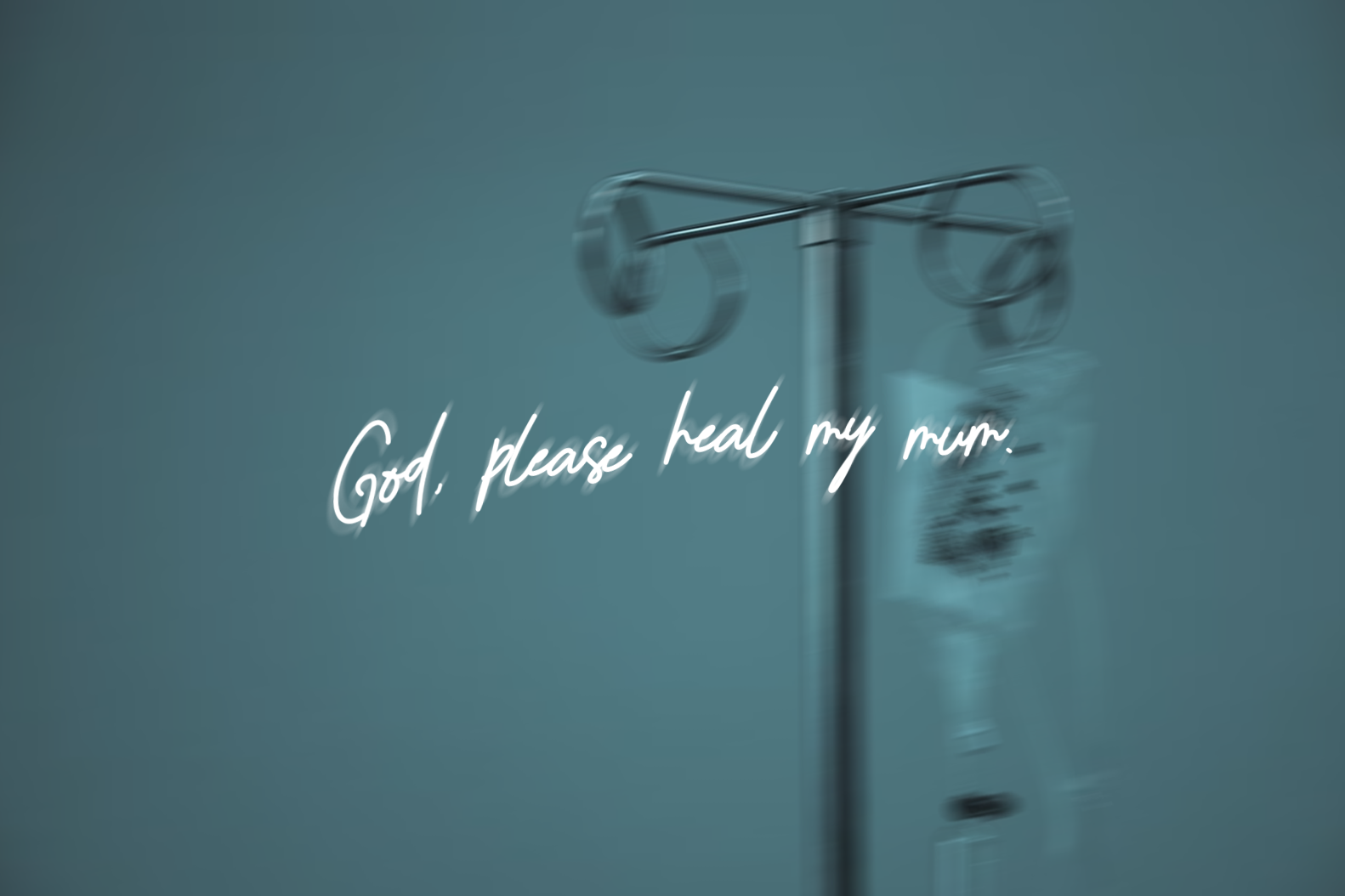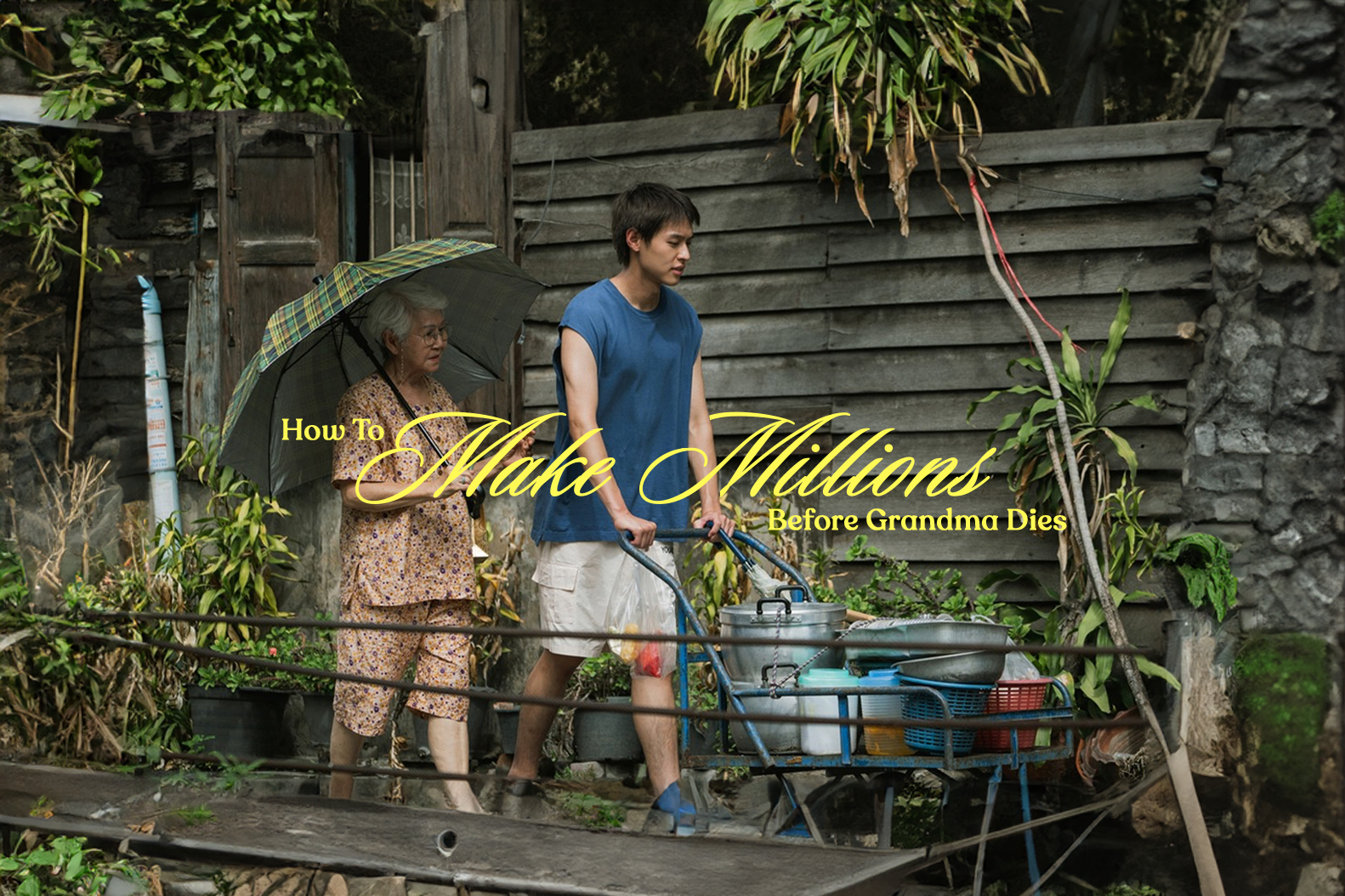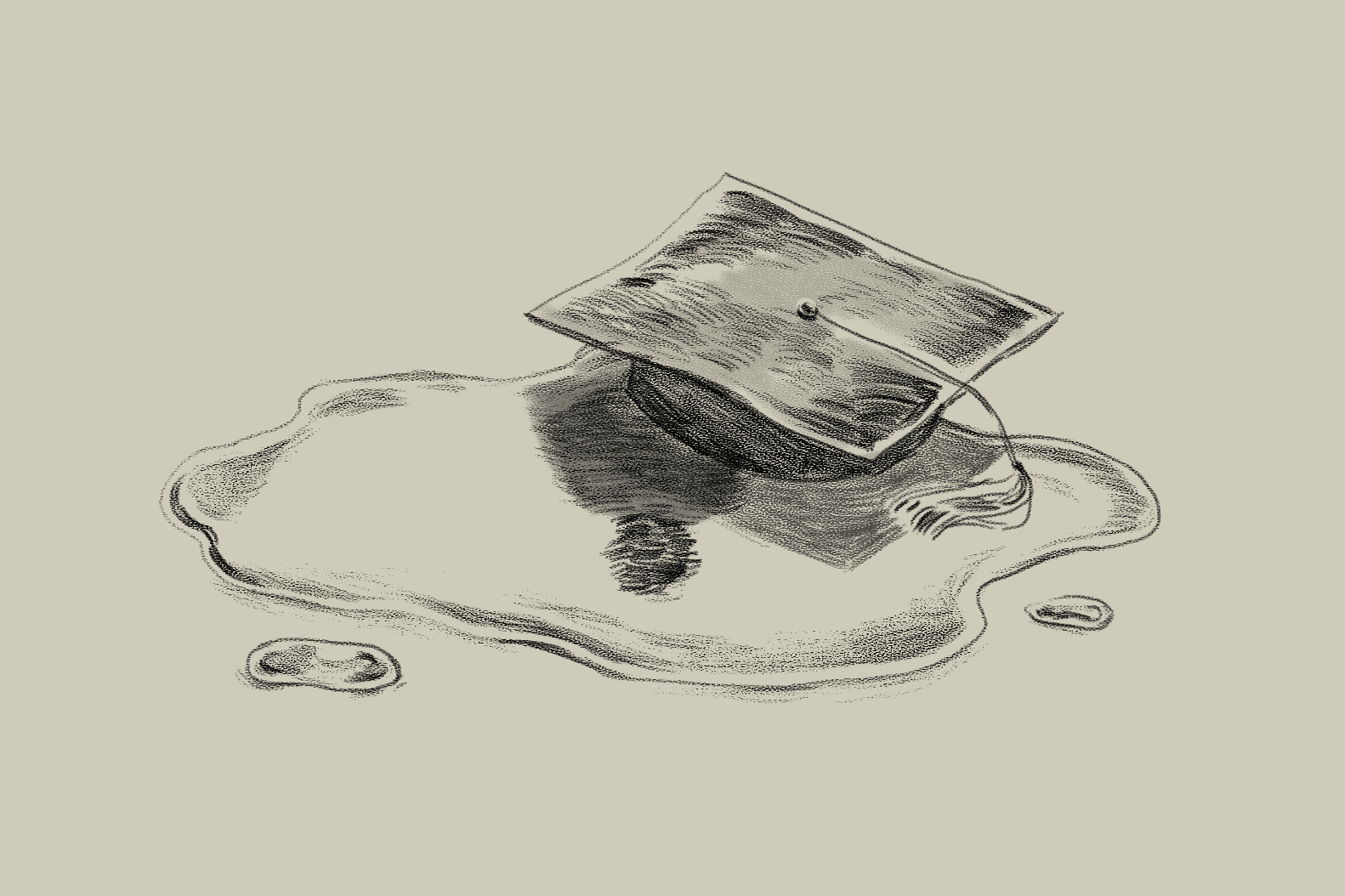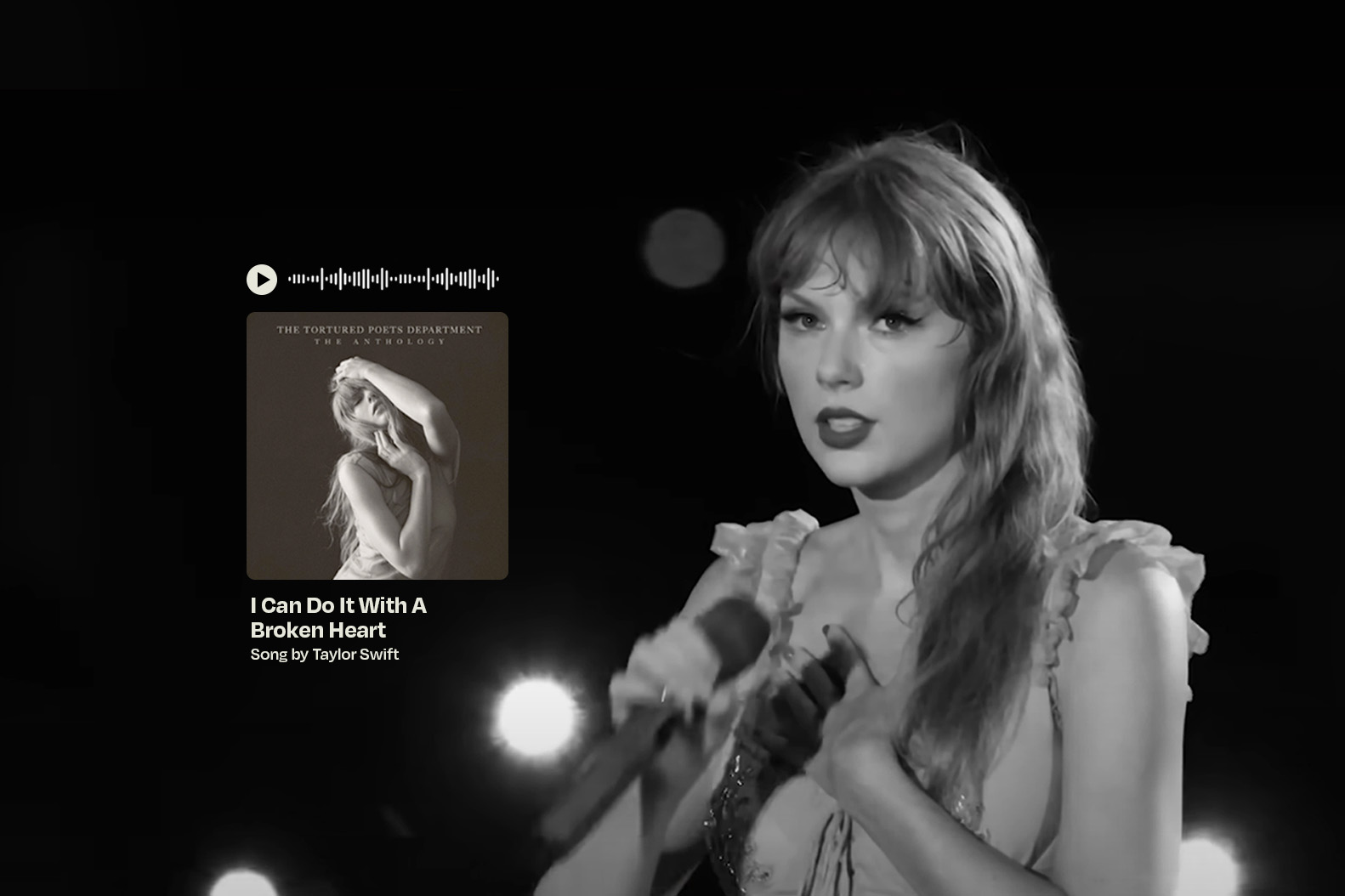I waited with bated breath for mum’s message in the hospital hallway.
My phone pinged. I saw image after image of a ugly red, fungating mass in a colon.
Immediately, I shrunk into my hospital scrubs. It was my first week of my clinical postings, and we had just finished a tutorial on colorectal cancer. I could tell the diagnosis on sight.
“They did the biopsy. It’s cancer. The doctor said it’s surgery or nothing else.”
I knew my mum had all the telltale signs of cancer — weight loss and a reduced appetite, coupled with the fresh blood from her stool. She had kept this from the family for the past six months, not wanting us to worry.
Mum was old, too. She had never been screened for colorectal cancer, and she ate foods which put her at high risk for developing the cancer.
The doctor who referred her to the surgeon had also felt a firm, irregularly shaped mass in her rectum.
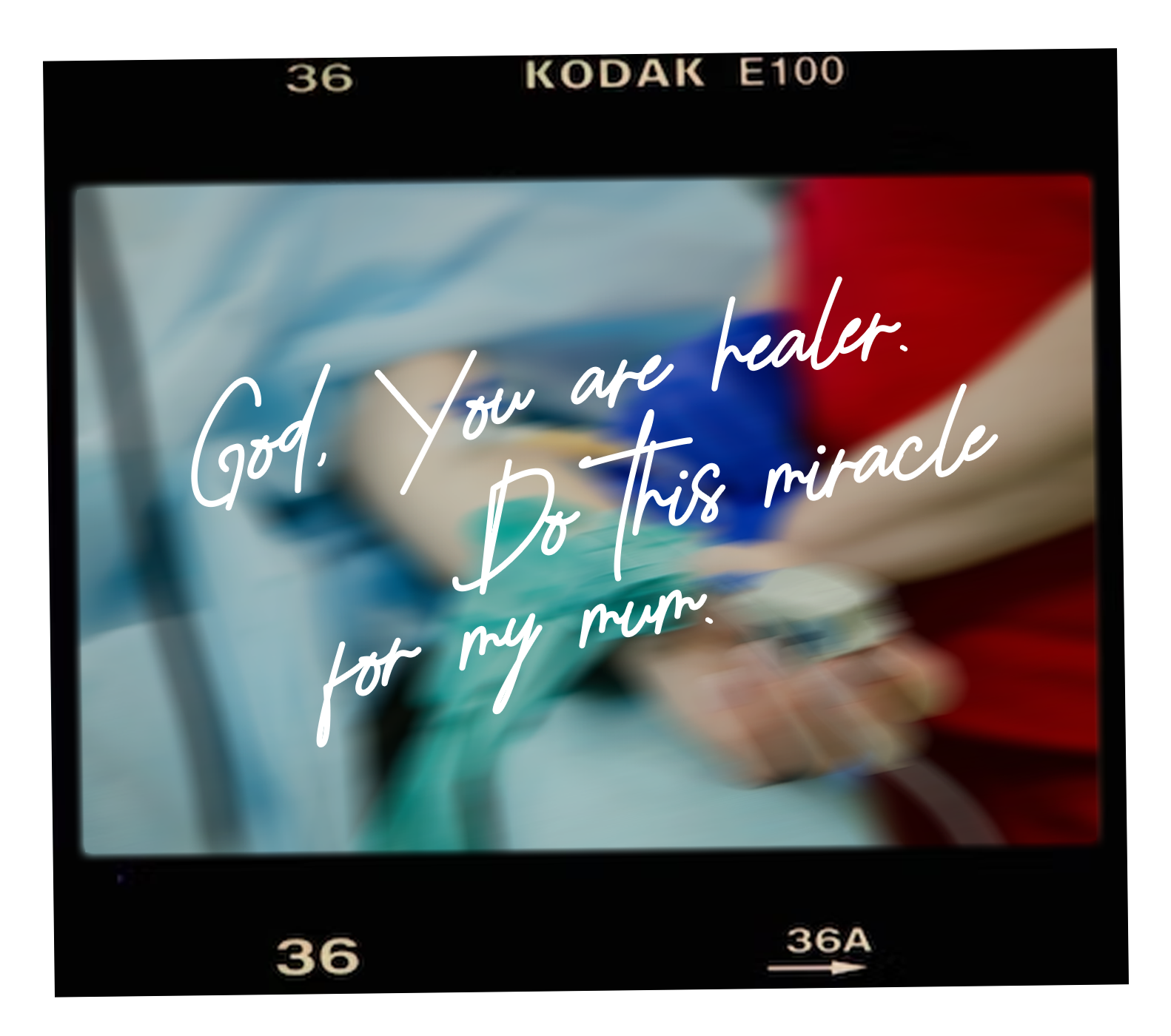
The night before the biopsy, I knelt by my bed to pray: “God, You are healer. Do this miracle for my mum. Show Yourself strong! Make this a testimony that will bring many others to know You.”
My mum’s biopsy results were a slap in the face. Stage 2 rectal adenocarcinoma, verging on Stage 3 — meaning it was at high risk of spreading further. I balked.
The surgeon quickly arranged for the operation in the same week. I thanked God for the swift arrangements, relieved that the surgery would be largely covered for by insurance.
Diagnosed with cancer at a young age, she discovered the love of God through kindness and open doors
Once again, the day before the surgery, I knelt beside my bed to pray.
“Father, thank You for protecting us in this difficult time. Guide the surgeon’s hands. I pray for a supernaturally quick recovery for mum. May the cancer be removed, never to return again.”
The aftermath of surgery
The surgeon beamed at us: “The surgery went wonderfully! We removed the whole mass, and managed to protect the muscles in the region. She should regain normal function soon enough.”
But my mum awoke to tears. There was now a plastic bag installed on her tummy which her intestines opened into. It spewed an ugly green liquid during mealtimes. Mum would have to learn to drain it herself, in time.
The stench was rancid, and mum would often pat the fresh scar where the surgeon had sliced into her belly, her eyes turning red.
This “stoma” was a temporary measure to enable the surgical site to heal well. She would have it on for a few weeks before going in for another surgery to reverse it. Mum hated it.
It felt like God had blue-ticked me for the past few months.
Mum listened to sermons daily. We prayed every night: “Lord, supernaturally heal mum’s rectum. Accelerate the healing so the surgeon will reverse the stoma early, Lord. Amen.”
I remember chirpily remarking to my cell group that I was certain she would be healed. “Faith is the confidence of things hoped for, the evidence of things not seen,” I would recite, even adding in the verse reference, too, for good measure.
But still, I thanked God that mum was in remission. The cancer was out. Others were not so lucky. Certainly, this was a miracle we could rejoice in.
When the hospital became our home
Weeks later, when the time came for the stoma to be reversed, mum and I thanked God for bringing her through this journey.
She shot me a bright smile before she was wheeled into the operating theatre. This was a valley season, but it would be coming to an end — what a relief!
Mum awoke to yet another rude shock. The muscles which helped control her bowel movements had been weakened from the surgery and weeks of disuse.
I held her hand as she began to sob again. While I patted her on the back, reassuring her of God’s sovereignty and love, doubt reared its ugly head in my heart.
“How could this happen, Lord? She’s been through so much already. Ordinary people go through less!”
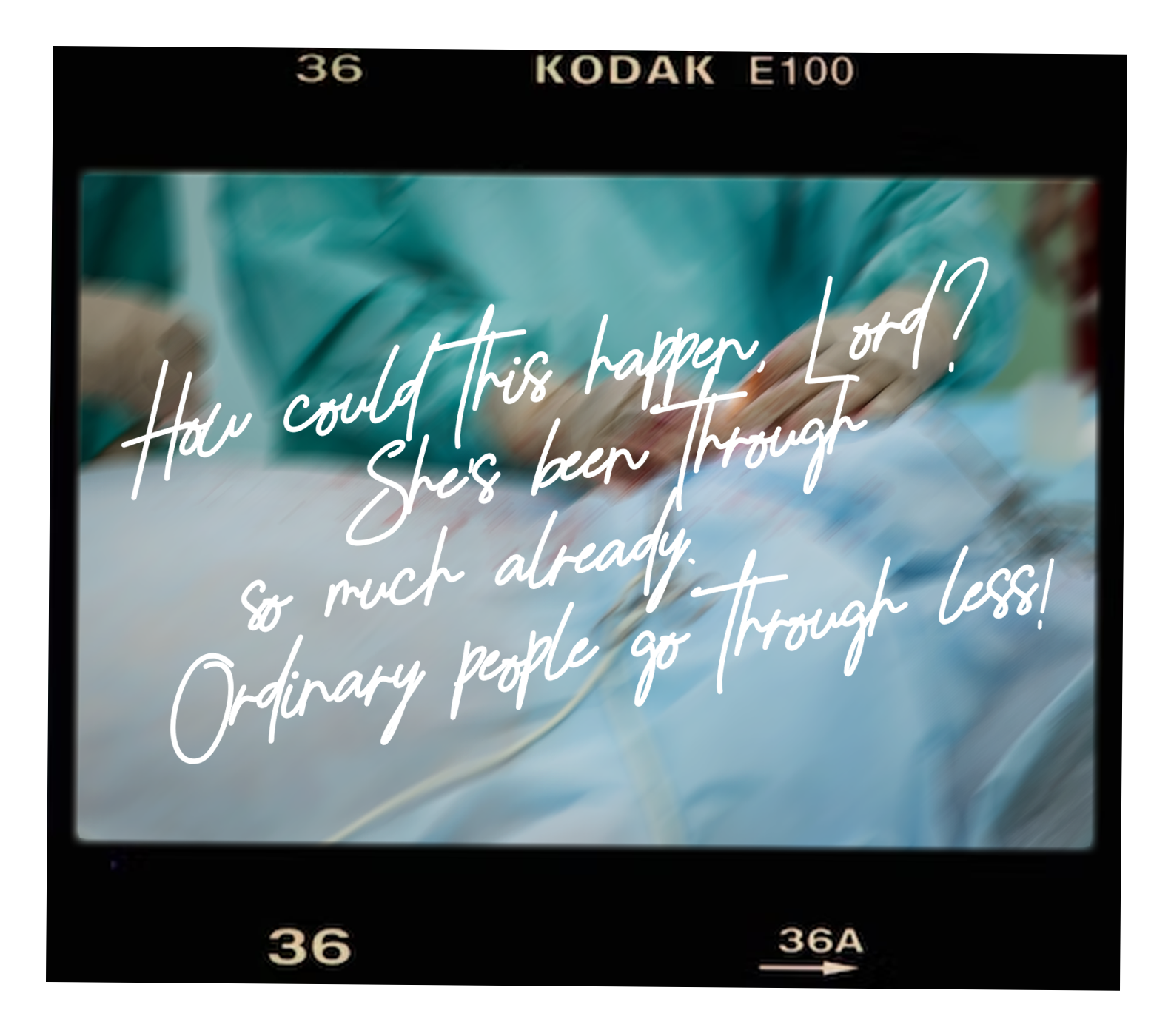
The sterile silence of the ward made mother’s wails all the more piercing. It felt like God had blue-ticked me for the past few months.
I was leading a cell group at the time, and I felt like the biggest hypocrite.
Here I was, speaking about God’s goodness and grace, but I couldn’t even believe it fully for my own mum.
The complications continued. Mum underwent a total of six surgeries and was hospitalised eight times. The hospital had become my home.
That’s the algebra of miracles, I thought. Illness + God = Healing. Was it not?
Mum was hospitalised for long periods of time. I spent time shuttling between two hospitals: the one I was posted to for my clinical rotations, and then visiting my mother after and on weekends. I was exhausted.
I had heard that life was meant to be a great adventure with God, but this felt like a dystopian Super Mario Galaxy — we leapt across from planet to planet after combatting each final boss, only to be confronted with harder and harder levels.
Super Mario Galaxy, minus the fantastical florals and neon lights. Everything we were going through seemed eerily natural. And natural, it seemed, was a curse word.
That’s the algebra of miracles, I thought. Illness + God = Healing. Was it not?
The final straw
One night, mum awoke to a debilitating pain in her pelvis. We rushed her to the emergency department.
A new scan confirmed our worst fears. The cancer had returned. This time, the tumour was near the nerves.
Surgery carried the risk of a permanent limp and the loss of her bowel movements.
I remember kneeling that night before my Bible as Hillsong Worship’s Healer played from my laptop. I waited until my parents were asleep before wailing my eyes out.
“Lord, how could this happen? I know it’s common for cancer to recur, but I thought You were protecting my mum. You say in Your word that You’re a healer!”
I cried out to the Lord in my bedroom for hours until a sudden peace settled over me.
“God, I don’t know what’s happening, but show me. I can’t do this anymore and I surrender,” was what I journaled.
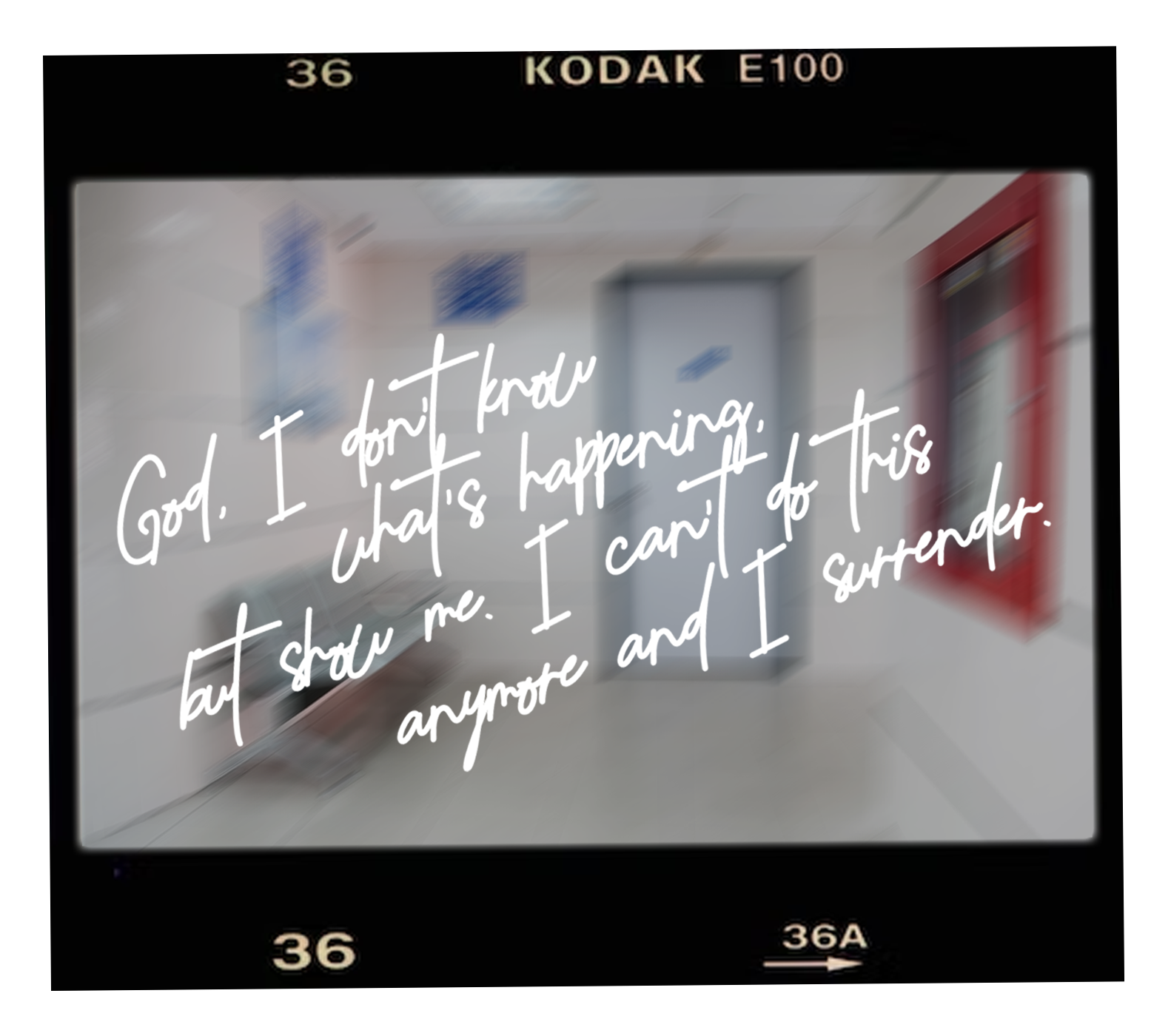
For the first time since my mum’s diagnosis, I let go of the stubborn, childlike prescriptions of the way God would and had to work.
I didn’t receive a finger snap revelation, but soon after that surrender (and the many ones after) peace found its way back into my life.
Surrendering healing and finding healing in surrender
The psalms became my daily refuge. I took comfort in David’s raw cries and let out my own tears in my times of prayer.
Lord, all my desire is before You; and my sighing is not hidden from You. I scribbled out Psalms 38:9 on my journal, back pressed against my bed frame at 2am after yet another unfavourable test result.
Make me to know your ways, teach me your paths. I wrote down Psalm 25:4, as I grappled with juggling my learning at clinicals and taking the time to be with my mum at home.
One thing I have asked of the Lord, and that I will seek: that I may dwell in the house of the Lord, all the days of my life, to gaze upon the beauty of the Lord. I’d return to the same worn page where I’d find Psalms 27:4 in my Bible, as I struggled with the unanswered prayers.
I began to see what my heart had been hard to receive before.
The Lord began to reveal the tiniest moments to me, like my mum having her own praise and worship session in the shower, and my father leading my mum by the hand in the park connector we have downstairs.
Precious moments, like when I pray with my mum and we trust together in ways which we never had before.
“Lord, what is man, that you take knowledge of him? Or the son of man, that You are mindful of him? Man is like a breath; His days are like a passing shadow.” (Psalms 144:3-4)
Who was I to question the Lord? Who was I to crown logic king? Who was I to prescribe the definition of a miracle, of goodness?
The “intolerable compliment”
In The Problem of Pain, C.S. Lewis speaks of “the intolerable compliment”:
“Over a sketch made idly to amuse a child, an artist may not take much trouble: he may be content to let it go even though it is not exactly as he meant it to be. But over the great picture of his life—the work which he loves, though in a different fashion, as intensely as a man loves a woman or a mother a child—he will take endless trouble—and would doubtless, thereby give endless trouble to the picture if it were sentient.
In the same way, it is natural for us to wish that God had designed for us a less glorious and less arduous destiny; but then we are wishing not for more love but for less.”
I thought miracles could be reduced to algebra, but God’s ways are truly higher than ours.
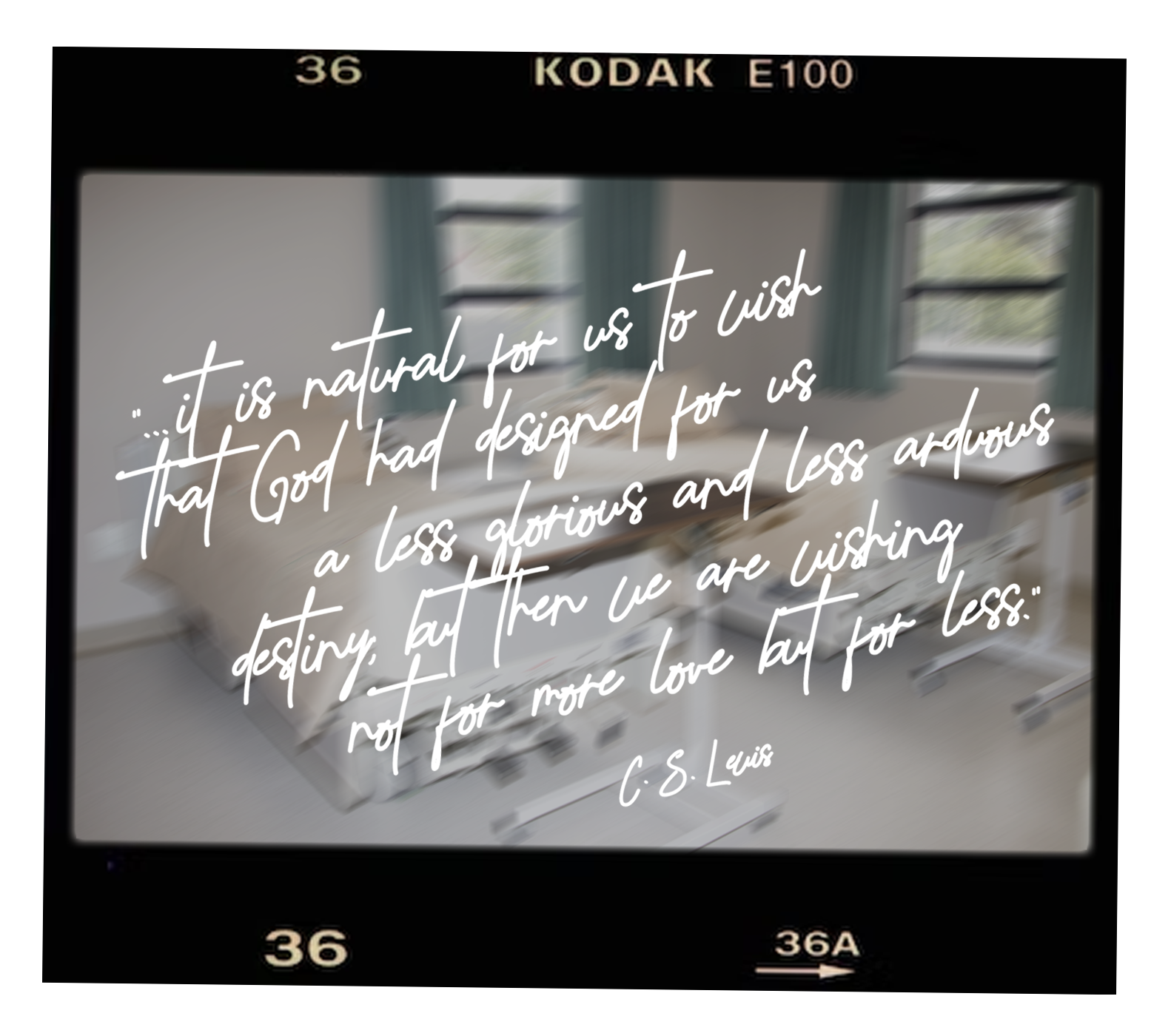
My mum and I had one of our biggest conflict in the weeks leading up to her diagnoses. I remember journaling about wishing to distance myself from my mum from then on to protect myself from further hurt.
In many ways, the Lord has restored my relationship with my mum through her journey with cancer.
The pain of illness has rallied our family together in ways we have never experienced before.
I am certain this would not have been possible, if the cancer had not occurred.
Through the struggle of caregiving and grappling with faith, I also felt prompted by the Lord to write poetry about those experiences, firmly rooted in hope.
This inspired a poetry manuscript which (by God’s grace) was selective for a competitive manuscript development programme and has recently been accepted for publication by a local press.
The difficult journey of caregiving also birthed a new passion in me for mental health. The Lord led me to take a gap year from medical school to work on youth mental health programmes and policies — an incredibly fulfilling experience which continues to bear fruit today.
Through that gap year, I also took an internship at Salt&Light — where I found dear friends and mentors who encouraged me to keep my eyes on the Lord throughout that difficult season.
The “why” questions never get us very far
I had resolved to write this article after my mother was healed.
In fact, I had already pre-written a version in which she was already healed. That’s how certain I was of miracle algebra.
But now, I’m increasingly certain of something else. Not that God doesn’t heal, because I certainly believe He does, but that this — the angst, the struggle, the tears — it’s an important part of the journey, too.
The verse “As the heavens are higher than the earth, so are my ways higher than your thoughts” (Isaiah 55:9) used to feel like such a cop-out to me.
But I am realising that the “why” questions often never get us very far. “Why did this happen? Why didn’t You heal? Why did that person receive immediate healing and not my mum?”
Instead, it is often wiser to ask “what” questions: “What is Your purpose in this? What is Your portion for me in all of this?”
And while His ways are higher than our ways, much more extensive is the way He loves us: “For I am persuaded, that neither death, nor life, nor angels, nor principalities, nor powers, nor things present, nor things to come, nor height, nor depth, nor any other creature shall be able to separate us from the love of God, which is in Christ Jesus our Lord” (Romans 8:38-39).
God = Love
I am certainly still praying for my mother’s healing. But now I also sit at the Father’s feet and believe more fully in His heart for our family. I believe that truly, all things work together for the good of those who love Him.
So what about you? I don’t know if you’re trusting God for a big family healing or salvation or if you’re battling the toughest season of your life.
But whatever it is, let’s not complicate the algebra of miracles. That is, the true miracle: “For God so loved the world, that He gave his only son, that whosoever believes in him shall not perish but have eternal life” (John 3:16).
For God so loved the world. For God so loved each and every one of us.
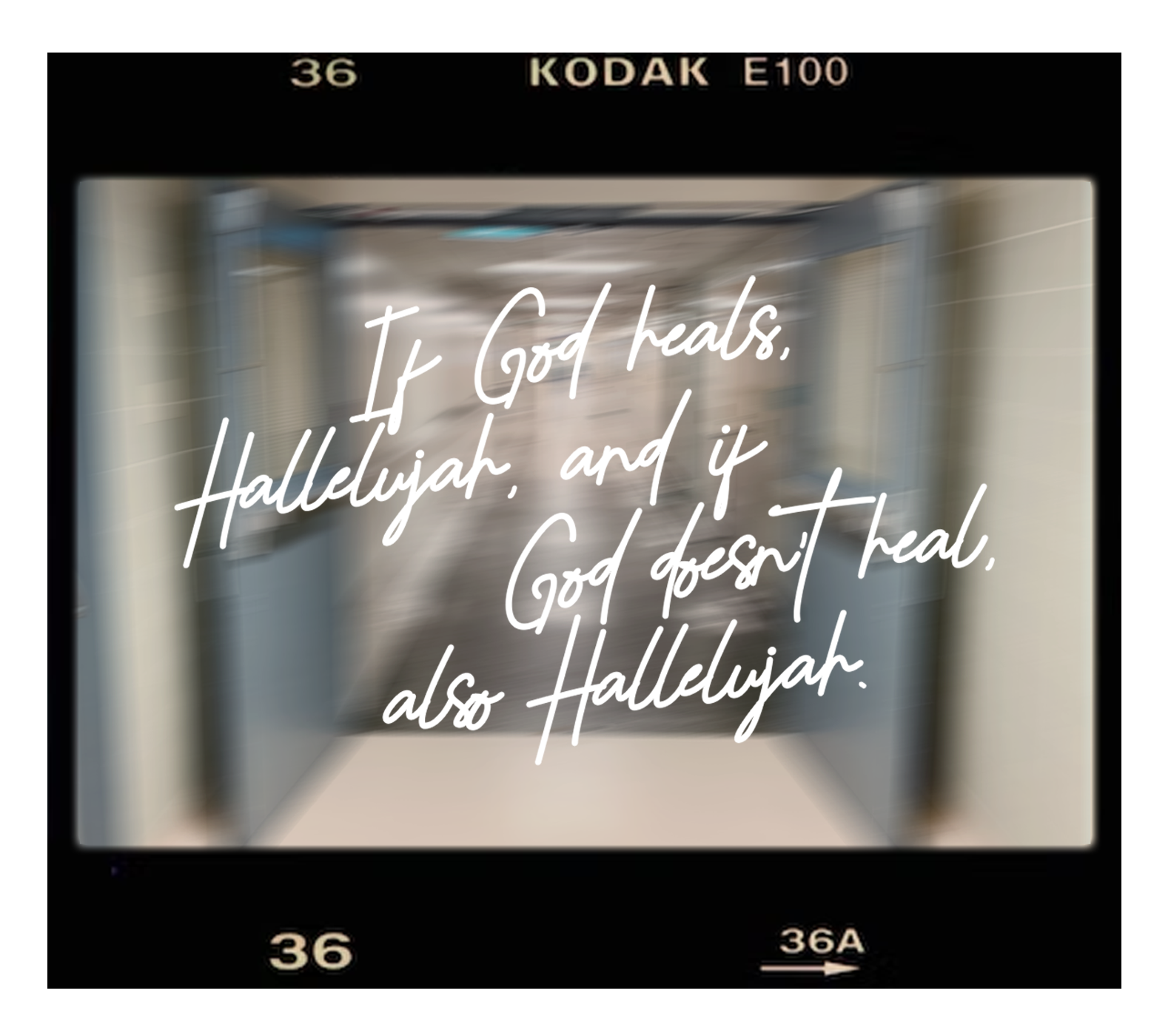
The Bible makes it so simple. God made it so simple. It’s the verse everyone, even those outside the faith, remember.
What if we took miracle algebra a step down and treasured this simple truth: that God = Good, and God = Love?
As Oswald Chambers says, what we think of as the journey — God thinks of as the end.
To paraphrase another testimony, if God heals, hallelujah. And if God doesn’t heal, also hallelujah!
- How do you respond when your prayers go unanswered?
- What are some “why” questions you might ask?
- How might you exchange those questions for “what” questions. What might those sound like?
- Know someone who’s going through something like the author? Reach out this week and be a practical blessing.


